Composition of the Council in the years 01.2020-12.2022 (HS)
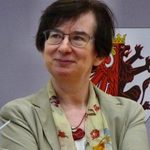
Prof. dr hab. Krystyna Bartol – professor, Head of the Department of Hellenic Studies at the Institute of Classical Philology, AdamMickiewicz University in Poznań. Her scientific interests include Greek poetry, especially its performance aspects, and post-Christian Greek prose. She is the author of over 90 scientific articles in the field of philology published in prestigious national and international specialist journals (including Eos, The Classical Quarterly, Quaderni Urbinati di Cultura Classica, Hermes, Philologus, Zeitschrift für Papyrologie und Epigraphik, AION, Paideia, Mnemosyne, Archiv für Papyrusforchung, Antike und Abendland, Museum Helveticum). She has also written 8 books in the same field, including the acknowledged and a quoted monograph entitled “Greek Elegy and Iambus: Studies in Ancient Literary Sources.” She was Director of the Institute of Classical Philology, Adam Mickiewicz University between 1999-2006, member of the Polish Philological Society (between 2008-2013 Vice-President and member of the General Board), member of the Committee on Ancient Culture of the Polish Academy of Sciences (between 2012-19 Head of the Committee on Ancient Culture of the Polish Academy of Sciences) and since 2017 an active member of the Polish Academy of Arts and Sciences. She is an editorial board member of the journal Symbolae Philologorum Posnaniensium and a scientific board member of the German journal Philologus. She is the winner of prestigious scholarships, including a professorial grant from the Foundation for Polish Science. Since 2016, a member of the Council of the National Science Centre and chair of the K-1 Main Commission on Humanities, Social Sciences and Arts since 2018.
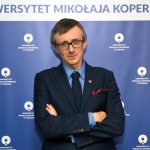
Dr Adrian Wójcik – Vice-Chair of the Scientific Council for HS, sociologist and social psychologist, Vice-Dean for Research and Internationalisation of the Faculty of Philosophy and Social Sciences, NCU. He was awarded the title of master and the degree of doctor at the University of Warsaw. In his doctoral thesis, he analyzed the relationship between the content of social memory of the Jewish minority and contemporary intergroup relations. Currently, his main research area involves conservation psychology. He focuses on the relationship between pro-environmental attitudes and behaviours, and more general socio-political beliefs (political ideology, various forms of identification, values). A collaborator of non-governmental environmental organisations for which he conducts workshops on pro-environmental communication. He has been a participant of numerous trainings on the analysis of intercultural data in social sciences (European Social Survey, GESIS, SERISS) and is a member of the editorial board of the Social Psychological Bulletin published as an Open Access journal.
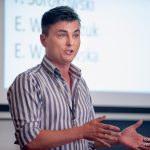
Dr hab. Maciej Karwowski, prof. UWr – doctor habilitated, professor of the University of Wrocław. He graduated in pedagogy from the Academy of Special Education in 2002, and two years later in sociology and psychology from the University of Warsaw. He was awarded the degree of doctor in the field of ability pedagogy in 2004 and habilitation in the same field in 2010 from the Academy of Special Education in Warsaw. He currently heads the Department of Creative Psychology at the Institute of Psychology, University of Wrocław. His scientific interests include the psychology of creativity and education and psychometrics and the methodology of social research. He is the author of over 160 scientific articles on psychology and pedagogy. He is the editor or author of 12 books in the same field, including a monograph published in 2017 entitled “The Creative Self: Effects of beliefs, self-efficacy, mindset, and identity.”, San Diego, CA: Academic Press. He has been the chairman of several review panels at the National Science Centre in the field of social sciences. He has also served as deputy editor-in-chief of the Journal of Creative Behavior – the oldest scientific journal on the psychology of creativity, member of editorial boards: Creativity Research Journal, Psychology of Aesthetics, Creativity, and the Arts, Thinking Skills and Creativity, Review of General Psychology, Journal of Creativity and Business Innovation and Frontiers in Psychology. Co-editor-in-chief of the Open Access journal Creativity: Theories-Research-Application.
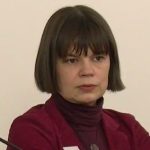
Prof. dr hab. Joanna Wojdon – associate professor at the Department of Methodology of Teaching History and Civic Education, Institute of History, University of Wrocław, a Fulbright alumna and the Kościuszko Foundation grant holder, a board member of the International Society for History Didactics and managing editor of its Yearbook, a member of the steering committee of the International Federation for Public History – a journal published since 1944 by the Polish American Historical Association. She is a member of the Presidium of the Committee on Migration Research of the Polish Academy of Sciences, a member of the Interdepartmental Commission for Diaspora Research of the Polish Academy of Arts and Sciences and a co-author of the first history e-textbook in Poland. She has developed the first MA program in public history in Poland. Other areas of her interest include teaching history through entertainment, the influence of politics and propaganda on education, especially in the People’s Republic of Poland, and the history of the Polish American community after World War II. The author of six monographs and seven edited works on these issues.
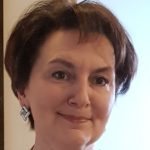
Dr hab. Ewa Dahlig-Turek, prof. IS PAN – Director of the Institute of Art of the Polish Academy of Sciences, musicologist, researcher of Polish folk music. She was Vice-President of the Polish Association of Research Managers and Administrations between 2005-2009. A member of the International Council for Traditional Music (chair of the Polish National Committee of ICTM) and European Seminar in Ethnomusicology. A reviewer of grant applications at the Australian Research Council (expert assessor of international standing since 1997), Israel Science Foundation (since 2001) and Foundation for Polish Science. Between 2008-2013, a member of the Standing Committee for the Humanities at the European Science Foundation in Strasburg. She was a member of the Committee for the Evaluation of Scientific Units (2011-2019) and Chair of the Commission of the Committee for the Evaluation of Scientific Units for the Group of Humanities and Social Sciences (2012-2019). She has been a member of the International Advisory Board at the Institute of Ethnology of the Czech Academy of Sciences since 2019. Her main areas of interest include issues of folk music culture in Poland with particular emphasis on folk instruments and problems of eurhythmics, computer-aided analysis of the rhythm “Polish dances” in Scandinavia. Her research has led to the reconstruction of forgotten Polish string instruments – the Bilgoray suka and the Płock fiddle. Since 2015, she has been implementing a pioneering project of the electronic edition of folk music recordings from the Oskar Kolberg collection in the Music Information Retrieval mode.

Dr hab. Łukasz Młyńczyk – research and teaching staff member at the Faculty of Political Science and International Studies University of Warsaw. He specializes in research on social research methodologies, metatheories and policy theory. He is the author of two scientific monographs “Between Creativity and Idleness. Politicalness of Two Ideal Types” (2015); “Religious policy. Perspective of the European Union” (2018 co-author) and several articles published in peer-reviewed scientific journals. He has published, among others, in Sweden and the United States. A content editor of scientific journals: “Athenaeum. Polish Political Science Studies” and “Review of Nationalities”. Between 2014-19, Vice-Director and then Acting Director of the Institute of Political Science of UZ. The supervisor of doctoral dissertations. A reviewer in promotion procedures. The author of editorial reviews of many scientific monographs published in Poland and abroad and of leading indexed political science journals in Poland. He has reviewed the texts of both Polish and foreign social scientists affiliated outside Polish research institutions. He specializes in the substantive evaluation of scientific texts concerning and in compliance with methodological rules in the area of social and humanities research, including political sciences, public policy, sociology, cultural anthropology, philosophy. An expert in the evaluation of texts in political science approached as strictly scientific research.
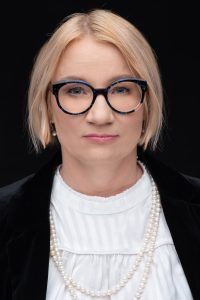
dr hab. Monika Lewandowicz-Machnikowska, prof. SWPS University – from 2003 to 2017 she was an employee of the Institute of Civil Law, Department of Labor Law at the University of Wroclaw, and since March 2017 she has been employed as a professor at SWPS University of Humanities and Social Sciences, where she serves as Dean of the Faculty of Law and Social Communication in Wroclaw. In 2014, she received a doctoral degree in legal sciences in the discipline of law on the basis of her dissertation: Legal regulation of social support for low-income people. She specializes in labor and social insurance law, social policy and social support for family, children and youth. She also deals with the legal regulation of competition in labor relations, legal acts of labor law, legal instruments for reconciling work and family life, protection of social risks and combating poverty. She has participated as a reviewer and expert in evaluations of proposals for funding research projects in NCN competitions. She is a member of the Polish Social Security Association and the Scientific Council of the journal “Work and Social Security.” She has published monographs “Competitive Clause in the Labor Code” (2004) and “Legal Regulation of Social Support for Low-Income Persons” (2013), as well as many glosses and articles in the field of labor law, social assistance and social support benefits. He is currently working on an interdisciplinary research project, “Consent as an Event of Labor Law,” funded by NCN (No. 2018/29/B/HS5/02061).
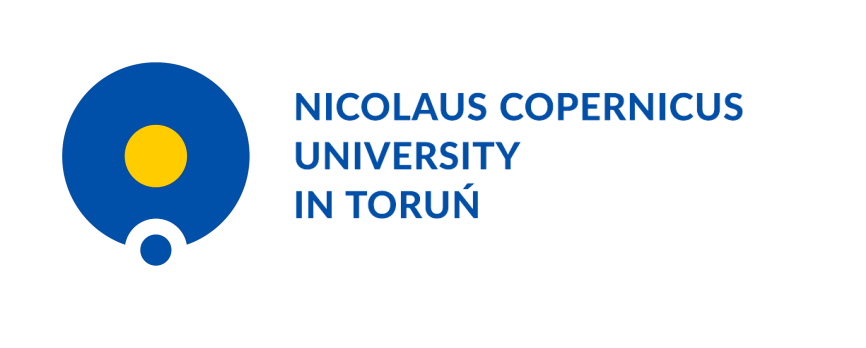
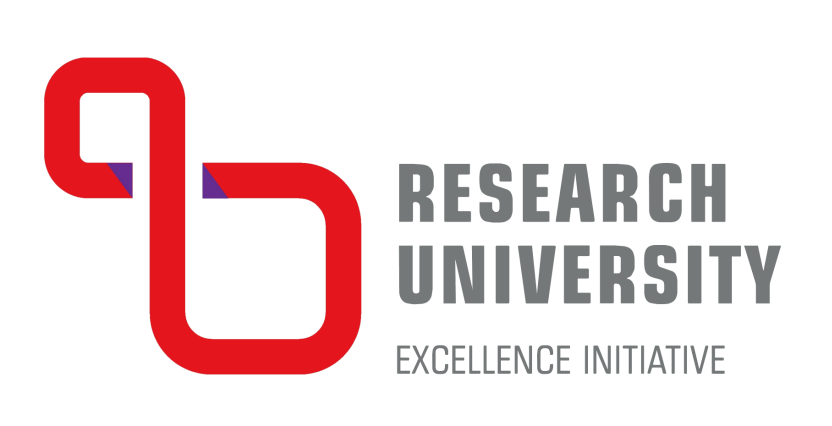
 ul. Gagarina 7, 87-100 Toruń
ul. Gagarina 7, 87-100 Toruń